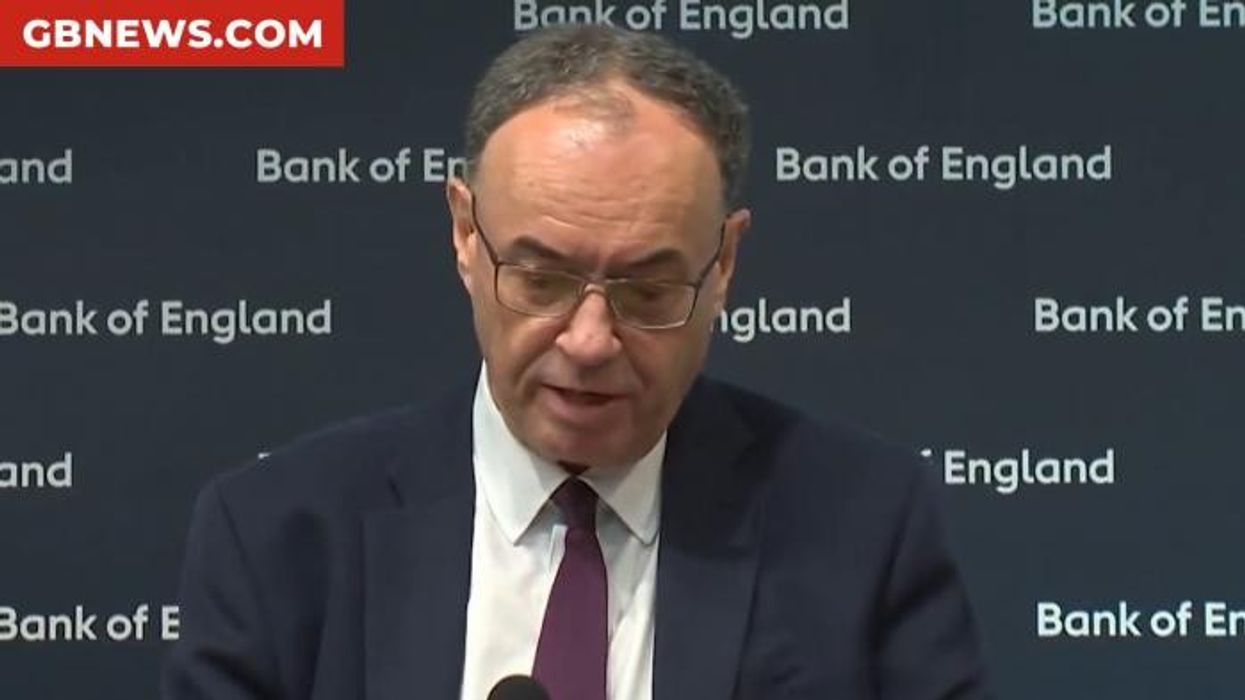UK savers issued urgent warning as inflation threatens to wipe out returns for first time in two years

The Bank of England expects inflation to rise to four per cent
Don't Miss
Most Read
Latest
British savers are facing a fresh blow as returns on savings accounts start to shrink, raising fears that money held in the bank could soon lose value once inflation is taken into account.
The warning comes as interest rates on popular accounts are being cut just as the cost of living climbs again.
Savers could see their money lose value in real terms for the first time since Autumn 2023, as financial institutions reduce interest rates following the Bank of England's decision to lower the base rate to 4 per cent on 7 August.
The threat emerges as inflation climbed to 3.6 per cent in June, reaching an 18-month peak, with the Bank of England projecting it will hit four per cent by September.
Financial institutions have moved swiftly to reduce returns for savers, with more than 20 providers implementing cuts within days of the central bank's announcement, according to financial data specialist Moneyfacts.
Major high street banks including NatWest and Santander have reduced rates on various savings products, whilst some digital banks have implemented more aggressive reductions.
Atom Bank slashed its instant saver reward account rate by 0.58 percentage points to 3.93 per cent, more than double the central bank's cut. OakNorth reduced its 20-day notice account rate by 0.34 percentage points to 3.78 per cent.
Skipton Building Society decreased rates on both its Cash ISA Saver and Children's Trust Saver by 0.5 percentage points.
Meanwhile, Santander trimmed its Junior ISA rate by 0.10 percentage points to 2.7 per cent, and NatWest reduced its Cash ISA by 0.25 percentage points and Help to Buy ISA by 0.20 percentage points.

Major high street banks including NatWest and Santander have reduced rates on various savings products
| GETTYRachel Springall from Moneyfacts cautioned that many customers with variable-rate accounts could find their returns falling short of inflation if it reaches the predicted 4 per cent level.
"If inflation does rise to 4 per cent as predicted, there's going to be many savers who aren't actually beating that on a variable rate," she stated. "So it just shows you again that those real-term figures are going to be eroded."
She advised customers to monitor their rates carefully but warned that switching providers might prove ineffective, as most institutions are expected to implement reductions in the coming weeks.

According to Moneyfacts data, October 2023 was the last occasion when typical savings returns fell below the Consumer Prices Index inflation rate.
| GETTY"Customers could shift their account now and then in a couple of weeks find that the new provider they went to is actually going to be cutting their existing customer rates. So it feels like that's a bit of a waste of effort," Springall explained.
According to Moneyfacts data, October 2023 was the last occasion when typical savings returns fell below the Consumer Prices Index inflation rate.
The rapid implementation of rate reductions contrasts sharply with the sluggish pace at which institutions increased rates during previous base rate rises.

The current situation affects various savings products
| GETTYFormer Conservative Chancellor Jeremy Hunt criticised banks in 2023 for being "taking too long" to transfer base rate increases to savers' accounts.
The current situation affects various savings products including easy access accounts, notice accounts, Cash ISAs, Lifetime ISAs, Junior ISAs and children's savings accounts.
Whilst borrowers on variable-rate mortgages will benefit immediately from the base rate reduction, most homeowners on fixed deals won't experience any change until their current terms expire.
More From GB News











